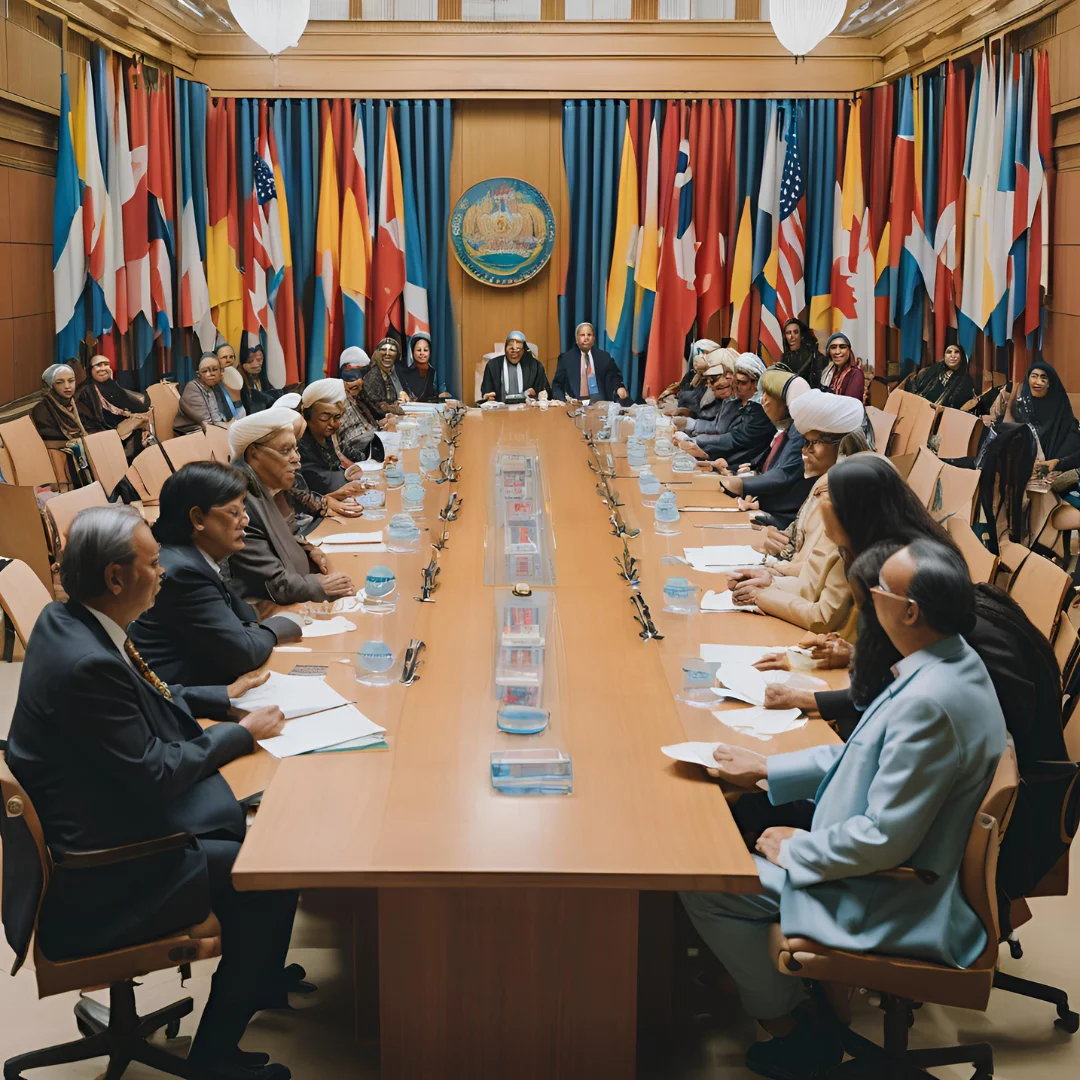Introduction
Society and politics are intricately entwined, impacting and molding one another. While societal beliefs, movements, and attitudes are what propel political change, political ideologies, governance structures, and policy choices all have an impact on social dynamics. Gaining an understanding of this interaction is essential to understanding how political institutions work and how social concerns are resolved. This blog explores the interplay between politics and society by looking at the workings of political systems, the function of ideologies, social movements, and the impact of the media and general public opinion.
1. Political Systems and Governance
Societies arrange themselves and reach decisions as a group within the framework of political systems. Different political systems have varying effects on social structures and governance.
-
Democracy: Citizens participate in decision-making processes in democracies, either directly or through elected representatives. Accountability, transparency, and political involvement are encouraged by this approach. More inclusive policies that take into account the wide range of public interests are frequently the result of democratic governance. The foundations of democratic societies are the free press, elections, and civil rights, which enable an accountable and representative government.
-
Autocracy: Under autocratic regimes, a single ruler or a small group of people have most of the power. These structures have the power to stifle criticism, restrict public engagement, and limit political freedoms. Autocracies are frequently typified by centralized decision-making and control over a wide range of spheres of society, such as the media, public expression, and education. Autocracies can make decisions quickly, but they can also have problems with legitimacy and unrest in the community.
-
Hybrid Systems: Numerous nations function with mixed political structures that incorporate aspects of autocracy and democracy. It may be difficult to strike a balance between political liberties and efficient government under these systems. Democratic elections may be held in hybrid systems, but there may be severe limitations on the freedom of the media and political opposition. These systems' intricacies can have a variety of effects on societal stability and governance.
2. Political Ideologies and Their Social Impact
Political ideologies are systems of thought that influence the structure and governance of societies. They have a significant impact on social structures and have an influence on policy decisions.
-
Liberalism: Liberal beliefs place a strong emphasis on equality, democracy, and individual rights. They impact laws pertaining to civil freedoms, healthcare, education, and the environment by promoting social justice, economic equality, and human rights. Policies that advance economic opportunity for all, environmental preservation, and social inclusiveness are often favored by liberals. The liberal perspective frequently results in an emphasis on individual liberties and progressive social reforms.
-
Conservatism: Conservative ideas emphasize upholding social order, conserving traditional values, and minimizing government involvement in the economy. Family structures, cultural legacy, and a free-market economy are frequently ranked highly by conservatives. Conservative policies may place a strong emphasis on individual accountability, reduced taxation, and less government regulation. Although conservatism seeks to maintain continuity and stability, it can also breed opposition to swift societal change.
-
Socialism: Social ownership and fair resource allocation are promoted under socialism. It advocates for measures meant to protect workers' rights, ensure universal healthcare, and lessen economic inequality. Socialists are in favor of government involvement in the economy to solve inequality and fund social programs. Socialism aims to redistribute money and establish common ownership in order to establish a more egalitarian society.
-
Libertarianism: Libertarian ideas place a high value on individual liberty and little intervention from the government. Libertarians support little government restriction, a free-market economy, and individual liberty. They place a strong emphasis on individual responsibility and choice, and they frequently reject government involvement in social and economic issues. Libertarianism upholds that a just society must prioritize the rights and freedoms of the individual.
3. Social Movements and Political Change
In order to address social concerns and shape political environments, social movements are essential. They are born out of injustices and work to bring about change via lobbying, demonstrations, and legislative changes.
-
Civil Rights Movement: The American Civil Rights Movement sought to eradicate prejudice and racial segregation. Significant legal changes as a result, including the Voting Rights Act and the Civil Rights Act, altered social and political relations. Communities were mobilized, discriminatory practices were contested, and the cause of racial equality was advanced.
-
Feminist Movement: The feminist movement promotes women's rights and gender equality. It has accomplished significant goals like equal pay for equal work, women's suffrage, and reproductive rights. Policies and societal attitudes about gender have been impacted by feminist movement, which has helped women have more opportunities and more inclusion.
-
Environmental Movement: The environmental movement tackles problems with sustainability, conservation, and climate change. Policies to lower carbon emissions, save natural resources, and advance environmental justice have resulted from it. The movement promotes sustainable habits and highlights how crucial it is to protect the environment for coming generations.
4. The Role of Media and Public Opinion
Public opinion and political discourse are significantly shaped by the media. It acts as a channel for information, influencing how people view and discuss issues.
-
News Media: News organizations cover social issues, political events, and policy. The public's view and political sentiments can be influenced by the way these events are conveyed. Unbiased reporting and investigative journalism support responsible public discourse and accountability.
-
Social Media: Social media platforms have transformed communication by making it possible for knowledge to spread quickly and for social movements to be mobilized. They enable direct communication and feedback-gathering in real time between legislators and the general public.
-
Public Opinion: Political decisions and the results of policies are greatly influenced by public opinion. When making choices, politicians and policymakers frequently take their constituents' opinions and preferences into account. Surveys and public opinion polls reveal societal opinions and priorities.
Conclusion
Politics and society interact in a dynamic and complex way, with political processes being shaped by societal ideals and social dynamics being influenced by governance institutions. Navigating modern issues and promoting constructive social change require an understanding of this interdependence. It is essential that we continue to be proactive, knowledgeable, and involved in tackling the problems that are shaping our world as we go forward.




